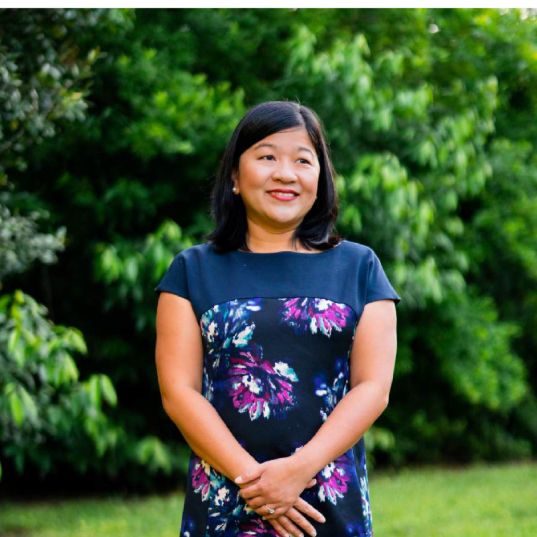Your Guide to Postpartum Depression Therapy in New York City
Finding postpartum depression therapy in New York City can feel overwhelming, but you don’t have to do it alone. Explore the MiResource therapist directory to connect with specialists who fit your needs, preferences, and neighborhood. Our platform helps you find a good match based on your needs and location so you can start feeling supported sooner.
Learn more about Postpartum Depression
Explore general information about postpartum depression in New York City, including common symptoms, contributing factors, and local context. Learn what to expect from therapy and treatment options, such as evaluation, evidence-based approaches, and support resources available in NYC.
What is Postpartum Depression?
Postpartum depression is a common, treatable mood disorder that can develop after childbirth, with persistent sadness, anxiety, or loss of interest, as defined by the American College of Obstetricians and Gynecologists and the National Institute of Mental Health. Common symptoms include irritability, tearfulness, trouble bonding with your baby, changes in sleep or appetite, feelings of guilt or worthlessness, and in severe cases thoughts of self-harm. It can make everyday tasks—caring for yourself and your baby, keeping up with routines, relationships, and work—feel overwhelming, even in New York City. You’re not alone, and help works; learn more and explore support options on our Postpartum Depression page.
Why Seek Therapy for Postpartum Depression?
Feeling unlike yourself after childbirth is common, and the right support can help you feel more present, connected, and hopeful in New York City. Evidence-based therapies for postpartum depression include Cognitive Behavioral Therapy to challenge negative thoughts and reduce guilt and worry; Interpersonal Therapy to ease role transitions, improve communication, and strengthen your support system; Behavioral Activation to rebuild restorative routines and lift mood; Mindfulness-Based Cognitive Therapy or other mindfulness approaches to quiet rumination and calm anxiety; Acceptance and Commitment Therapy to help you make room for hard feelings while moving toward your values; and psychodynamic therapy to explore identity shifts and deeper patterns—offered individually, in groups, and sometimes with your partner or baby to support bonding. These approaches are proven to improve sleep and energy, reduce intrusive thoughts, and foster confidence in your parenting. You deserve care that meets you where you are and helps you feel like yourself again.
What to Expect from Postpartum Depression Therapy
Postpartum depression therapy is a compassionate, collaborative process tailored to your needs, helping you feel understood and supported. In Cognitive Behavioral Therapy, you’ll learn to notice and reframe unhelpful thoughts, practice coping skills, and set gentle goals that fit your daily life. In Interpersonal Therapy, sessions focus on life changes, role transitions, and strengthening relationships to ease symptoms and build support. Behavioral Activation guides you to re-engage in meaningful activities step by step, rebuilding motivation and joy. Mindfulness-Based Cognitive Therapy teaches present-moment awareness and self-kindness to reduce rumination and prevent relapse, with your therapist adapting each approach to what feels most helpful for you in New York City.
How to Find the Right Postpartum Depression Therapist in New York City
Start by searching for Postpartum Depression to see therapists in New York City. Then filter results by therapist approach, verified experience with Postpartum Depression, your insurance, real-time availability, and proximity to your NYC neighborhood or borough. Review profiles to compare credentials, specialties, and session formats—MiResource makes side-by-side comparisons simple. Remember that personal fit, including communication style and cultural alignment, is crucial. Explore the directory now.
Why Choose a Local New York City Postpartum Depression Therapist?
New York City families navigate a fast-paced, multicultural environment where community dynamics can shape the postpartum experience. From the close-knit blocks of Bay Ridge and Jackson Heights to the 24/7 buzz of Midtown and Long Island City, new parents may feel both supported by neighborhood networks and overwhelmed by constant stimulation, noise, and limited space. A local therapist understands borough-specific stressors—like juggling multilingual households, balancing demanding work schedules, or adjusting to life far from extended family—and can integrate community strengths (faith groups in Washington Heights, parent meetups in Park Slope, co-ops on the Upper West Side) into a culturally responsive care plan.
Logistics matter when you’re healing and caring for a newborn. In-person therapy near your routine—whether by the 2/3 in Harlem, the A/C/E in Chelsea, the 7 in Sunnyside, the D/N/R in Sunset Park, or the Staten Island Ferry in St. George—reduces missed sessions and fatigue. A local clinician can schedule around rush hour on the FDR, BQE, or Cross Bronx, suggest elevator-accessible stations for strollers, and offer calm, private spaces close to pediatric visits at NYU Langone or Mount Sinai, nursing-friendly cafés near Central Park or Prospect Park, and short walks that fit between feeds and naps.
New Yorkers also benefit from a robust web of postpartum resources. For immediate, 24/7 support, NYC Well offers call, text, and chat with referrals across the five boroughs. The NYC Department of Health provides guidance and services specific to postpartum depression. City hospitals and borough clinics through NYC Health + Hospitals offer maternal mental health care regardless of insurance or immigration status. You can also connect with local peer groups via Postpartum Support International’s New York listings and statewide navigation through the Postpartum Resource Center of New York. A therapist rooted in NYC can coordinate with these supports—whether you live in Riverdale, Astoria, Bed-Stuy, or Tottenville—to build a practical, compassionate plan that meets you where you are.
Frequently Asked Questions
How do I know if I need a therapist for Postpartum Depression?
If you’re feeling persistently sad, anxious, overwhelmed, or numb for more than two weeks after birth, it may help to talk with a therapist. Signs can include trouble bonding with your baby, irritability, frequent crying, guilt, or scary thoughts that feel hard to control. You might also notice sleep or appetite changes beyond what’s typical for new parents. If your feelings are getting in the way of daily life or relationships in New York City, support is available.
What if I don't feel a connection with my therapist? Is it okay to switch?
Yes—finding the right fit is a normal part of the process. The therapeutic alliance is especially important for Postpartum Depression because you need to feel safe, understood, and supported. If after a few sessions you don’t feel heard or comfortable, it’s okay to discuss your concerns or try another therapist. In New York City, there are many providers, so you can choose someone whose style and approach match your needs.
Is online therapy as effective as in-person therapy?
For many people with Postpartum Depression, online therapy can be just as effective as in-person care. It can be easier to access in New York City with childcare, scheduling, or transportation challenges, and some parents feel more comfortable meeting from home. Others prefer in-person sessions for the structure, privacy outside the home, or specific modalities. The best choice depends on your preferences, the severity of symptoms, and what helps you feel most supported.
What should I ask a potential Postpartum Depression therapist?
You might ask about their training and experience with perinatal mood and anxiety disorders, and whether they use evidence-based approaches like CBT, IPT, or trauma-informed care. Ask how they involve partners or family, and how they coordinate with OB/GYNs, doulas, or psychiatrists if medication is considered. Clarify availability (including evenings/telehealth), session length, fees, insurance, and sliding scales in New York City. It also helps to ask how they measure progress and what a typical session looks like.
Does therapy for Postpartum Depression really work?
Yes—research shows therapies like cognitive behavioral therapy (CBT) and interpersonal therapy (IPT) are effective for reducing symptoms and improving functioning. Many parents report feeling more hopeful, connected, and confident in their coping within a few weeks. Consistency, a good therapeutic fit, and support between sessions strengthen results. In New York City, access to specialized perinatal therapists and coordinated care can further improve outcomes.













